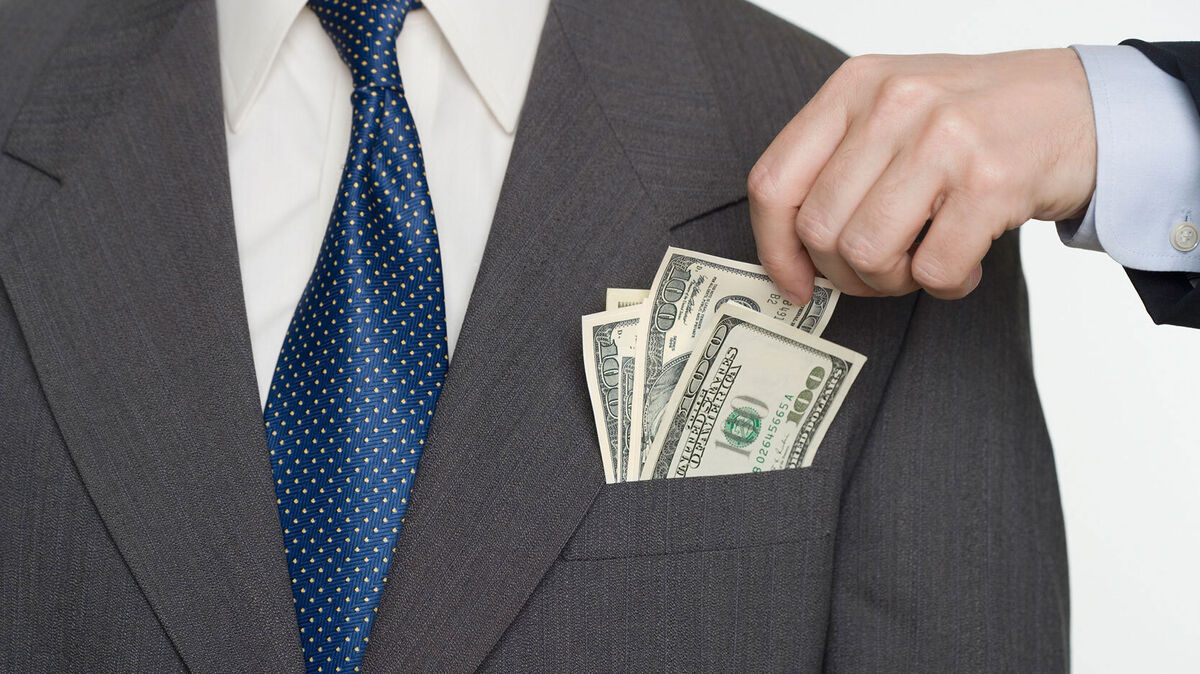
What is unethical behavior, exactly? Unethical behavior is an action that falls outside of what is considered right or proper for a person, a profession or an industry. Individuals can behave unethically, as can businesses, professionals and politicians. However, one's definition of "unethical" depends on their own ethical standards and the standards of their society. Take a look at different unethical behavior examples that are generally agreed upon as unacceptable.
Unethical Behavior Among Individuals
To people with high ethical standards, the question of right vs. wrong is clear. Societies reinforce the accepted ethics of individuals with laws and consequences. While some situations may be defined as ethical dilemmas, most people would agree that the following behaviors are not acceptable in individual relationships.
Someone lies to their spouse about how much money they spent.
A teenager lies to their parents about where they were for the evening.
An employee steals money from the petty cash drawer at work.
You lie on your resume in order to get a job.
Friends talk about another friend behind his back.
A student takes credit for work they did not do.
A college student cheats on a school paper by copying it off the Internet.
Someone takes $20.00 out of their friend's wallet when she is sleeping.
You sell a house and don't disclose known defects to the buyers.
A person sells a car and lies about the vehicle's accident history.
Unethical Behavior Among Businesses
Business ethics are so important that most companies have formal codes of ethics to make their expectations clear. Some unethical behaviors in the workplace are illegal as well as unethical. Take a look at the different unethical behaviors one may see businesses commit.
A chemical company dumps pollutants into the water supply rather than cleaning up the pollution properly.
A factory releases toxins into the air at levels above what is permitted by the Environmental Protection Agency.
An employer coerces an injured worker not to report a work injury to workers' compensation by threatening him with the loss of a job or benefits.
A supervisor refuses to give an employee a final paycheck for hours worked before the employee left the company.
Someone in power uses their position to sexually harass a subordinate.
A company incorrectly classifies an employee as an independent contractor in order to reduce payroll taxes and avoid providing benefits.
Large companies engage in price-fixing to force smaller competitors out of business.
Businesses use bait and switch or false advertising tactics to lure customers in or convince them to buy a product.
A car salesman rolls back the odometer on a vehicle that is for sale.
A company refuses to honor a warranty claim on a defective product.
Unethical Behavior by Professionals
Doctors and lawyers are bound by a stricter code of ethics because they are taking care of and representing people who trust them. These professionals risk malpractice accusations if they act in an unethical manner. Read a sample list of unethical behaviors by these professionals.
A doctor dates a patient in their care.
A physician doesn't tell a patient his true diagnosis because it may reveal that there was a mistake in his care.
A dentist performs unnecessary procedures on a patient in order to receive the insurance payment.
A doctor uses a patient as a teaching tool for students for long periods of time without the permission of the patient or patient's family.
A lawyer will not return money or provide a settlement that was being held for a client.
A lawyer represents parties on both sides of a legal transaction.
Unethical Behavior Among Politicians and the Government
You may also see examples of unethical behavior in the political world. Some politicians walk a fine line between getting elected and remaining ethical, and many governments struggle with upholding rights-based ethics for both their citizens and citizens in other countries.
A politician uses the Internal Revenue Service (IRS) to target groups that they do not like by auditing those groups or refusing to give them tax-exempt status.
Someone running for office obtains private tax information about their political opponents and uses that information in a campaign.
A person running for office knowingly tells lies about their own political position or about the political position of their opponent just to get elected.
A politician accepts excess campaign contributions that violate campaign finance laws.
Someone running for office uses money that was donated to their campaign for personal, non-approved expenses.
An elected official uses their position of power to coerce lobbyists into buying expensive gifts for them and for their spouse.
The government secretly spies on U.S. citizens in violation of the Fourth Amendment and lies about it.
A person in a position of power closes traffic lanes to intentionally create a traffic jam because residents in that city are not likely to vote for them in an election.
Ethics Keep Society Functioning
These are just some of the many different examples of unethical behavior that could occur. But what makes these behaviors unethical rather than immoral? Learn more about the differences between ethics, morals and values, and see how they're treated differently in society. You can also take a look at examples of admirable virtues that many societies value in their citizens.